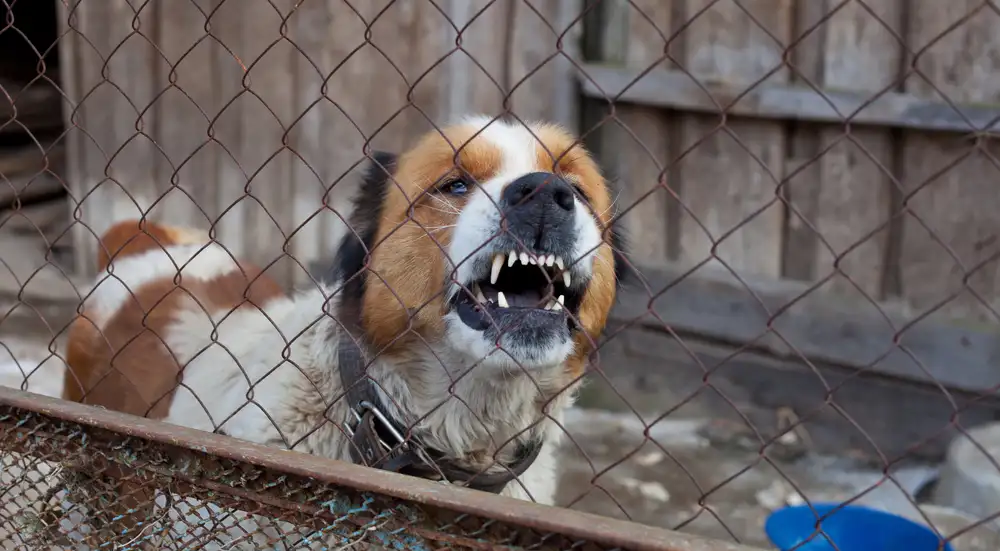If you or a loved one has suffered injuries after being bitten by someone else’s dog, you deserve compensation and legal support. At Blumenshine Law Group, our experienced dog bite attorneys are here to provide expert legal representation and help you navigate the complexities of dog bite cases.

If you or a loved one has been gravely injured, or if you have tragically lost someone due to an animal attack in Chicago or anywhere across Illinois, the dedicated team of personal injury lawyers at Blumenshine Law Group is committed to assisting you. Call us today at (312)766-1000.
People today rely on dogs for several functions, from working dogs that herd animals such as cattle and sheep to hunting dogs that flush game, but more commonly now as pets that mostly just nap, eat treats, and bark at the mailman. Dogs offer protection and companionship and are valued as service dogs for the disabled. Dogs also work with first responders, such as search and rescue, as well as police and military. The functions dogs serve are as varied as their breeds, yet the ways dogs have been bred over the millennia still retain a universal predatory trait: biting. While some dogs have been selectively bred and trained to bite on command, this can lead to unforeseen and tragic outcomes like serious injuries or even death. A Chicago dog bite attorney can help you navigate an often confusing and frustrating system to help you get the compensation you deserve.
Why Do Dogs Bite?
Dogs are predatory animals with an instinct to bite. From their early beginnings, canids such as wolves, foxes, coyotes, and even the family dog are carnivores that have evolved to use their mouths to take down game, carry items, and even communicate. Dog teeth have developed to inflict serious damage when used in predation, specifically in puncturing, ripping, and sawing to maximize blood loss in fighting and hunting prey. Unlike human teeth, which incorporate molars and other omnivorous functions to eat plants, dog teeth can deliver a lot of damage.
Dogs might bite humans for a variety of reasons. Sometimes, dogs bite people running, which triggers a predatory reflex to pursue prey. Dogs also use their teeth to demonstrate dominance in defense or aggression. Pushing a dog’s fight-or-flight response could result in a bite, especially if they are reacting out of fear or defense of their territory. Dogs might be particularly defensive of their yards, homes, or human family members (which is a reason dogs have been valued for centuries for protection).
Dogs also bite or nip as a form of communication within a pack. Sometimes tragedy strikes when small children pull on a dog’s fur or ears and agitate it. Within a pack, a normally corrective reaction with another dog can easily break the skin and cause serious damage to humans. A typical reaction to irritation or pain is a bite. However, those teeth inflict a lot of damage, and sometimes, a bite can be very serious or result in mauling when predation instincts to fight and even kill take over.
Dog Bite Statistics
Every year, hundreds of people in Illinois are injured in dog attacks. Under Illinois law, dog owners are usually liable for damages due to bites. According to the Insurance Information Institute, Illinois was second to California in the cost of dog bite claims, with insurance companies paying over $31 million in damages. In 2015, 931 claims were filed, with an average cost of $33,385 per claim.
Common Types of Dog Bite Injuries
Many dog bites result from a “warning bite,” which might sound vicious but not break the skin. The severity of bites increases with breaking the skin with a shallow wound to multiple deep bites and even serious tissue damage or a victim being eaten during an attack, which is thankfully rare. While dogs may react instinctively to sudden movements or proximity to their food by biting, these incidents often involve bites to the extremities or other non-vital areas. The underlying causes in such cases are typically prey drive when triggered by running, bicycling, or food-guarding behavior rather than innate aggression. Many dogs can learn to moderate these reactions with proper training and socialization.
- Hands: Entering a dog’s personal space might be perceived as a threat, so petting an unfamiliar dog or a dog showing signs of aggression can result in bites. A dog’s bite is much faster than a person’s ability to move their hand if they aren’t expecting aggression.
- Legs and ankles: Common for runners, running children, or bicyclists, legs and ankles are also vulnerable to attacks when a person is kicking a dog away out of self-defense.
- Facial injuries: Very common with children, these types of injuries can cause blindness, disfigurement, and extreme tissue damage.
- Arms: Some dogs are trained to immobilize and take down a person by targeting their arms. Oftentimes, they bite and lock down to prevent a person from getting away. This is an instinct that some breeds have more than others, which is why police and military value dogs with this demeanor. That isn’t to say this reaction isn’t in all dogs to some degree.
- Throat: Strikes against the throat and other soft-tissue areas are a common way dogs dispatch prey in the wild, and serious bites might involve these.
Consequences of a Dog Bite
Dog teeth have evolved to deliver maximum damage in a canine attack and provide a deep, clamping grip to immobilize prey. Bleeding out is the intended result of a coordinated attack from dogs in predation. Many breeds, especially those bred for fighting, hunting, or protection, have been developed to utilize these instincts.
Serious injuries resulting from a dog bite
- Broken blood vessels: Teeth can easily puncture the skin and result in bruising and bleeding.
- Tendon damage: Severing tendons disables a person’s ability to fight or run away from a dog attack. Even a single bite can deliver a wound that will require healing surgery.
- Lacerations: Deep cuts and even severing extremities to facilitate excessive bleeding and loss of life. Deep or shearing bites might require surgery and even skin grafts to repair.
- Mental trauma: A dog attack can be a very traumatizing experience. Post-traumatic stress disorder, anxiety, and depression are common in people recovering from bites.
- Infection: A dog’s mouth is not very clean, which is why bites that break the skin need to be treated by a physician. A doctor may irrigate and treat the wound and administer antibiotics to fight bacterial infection. Tetanus might also result in vaccination and treatment.
- Rabies: The law requires dogs four months or older in Illinois to be vaccinated by a veterinary professional. Rabies is a disease that affects the brains of infected animals and causes aggression, confusion, and, eventually, a painful death. It is spread by saliva, either through shared drinking water or, more commonly, animal bites. Some wild animals, such as coyotes, skunks, raccoons, and bats, carry rabies and can pass the disease on to pets that have not been inoculated.
- Death: Many attacks turn deadly, especially in coordinated pack attacks or bites on small children.
Discuss Your Case With a Lawyer Now (312) 766-1000
Damages from Dog Bites
In Illinois, the dog’s owner responsible for the attack is generally responsible for paying damages related to a dog bite. There are a few exceptions to this, however. Animals acting defensively against unlawful trespass, protecting themselves or their owners from assault or mistreatment, or performing their duties as service dogs such as a K-9 police unit are exempt. Here are some damages common to dog bites:
- Emergency medical care: ER and ambulance rides to treat wounds and staunch bleeding.
- Surgery: Surgery might be required to repair damaged tissue and organs and attempt to correct disfigurement caused by bites. Multiple surgeries can cost tens of thousands of dollars and even take years.
- Hospitalization: Lengthy stays in the hospital are likely to monitor and treat excessive wounds. Hospitals are expensive but necessary to preserve your health and comfort of living.
- Physical therapy: Serious maulings and deep tissue injuries could warrant physical therapy to regain full or even partial range of motion to affected body parts.
- Permanent disability: Loss of extremities, eyes, ears, or other body parts could result in permanent disability.
- Pain and suffering: Not only mental trauma but pain management, suffering, and the aftermath of surviving an attack require compensation for dog owners responsible for their animal’s behavior.
- Loss of income/future income: Trauma, hospitalization, and rehabilitation for injuries might mean loss of income during recovery and future income as a result of disability. As medical bills pile up, a financial loss can be devastating to a dog bite victim. Chicago dog bite lawyers can help you get the compensation you need for these and other damages.
- Death: Most commonly, death from dog bites affects children or those unable to fend off an attack. Such a tragic loss will leave a hole in a family which can never be filled.

Illinois Dog Bite Laws
Cook County, Illinois, takes its dog bite laws seriously. The law requires that local law enforcement be contacted within 24 hours of the incident. Animals that have bitten a person or their animal must be quarantined for observation. A hired veterinary behaviorist must determine if the animal is vicious or dangerous at the expense of the dog’s owner. The dog cannot be killed, sold, or disposed of after the incident. Non-compliance can result in impoundment.
A dog bite can result in a felony offense for various reasons. The owner of the offending dog can find themselves with a class 3 felony if a dangerous dog inflicts serious injury or death on someone without provocation. A reckless dog owner who allows dogs to run around unrestrained could be charged with a class 2 felony. The dog owner must comply with the law and pay appropriate fines, damages, and fees for impoundment or behavioral analysis.
What to Do After a Dog Bite in Chicago
According to the Cook County government, you must take several steps if a dog has bitten you.
- Seek medical treatment: Your safety and health take priority. See a medical professional and get treatment right away. Bites can turn bad, resulting in permanent disfigurement, infection, and even death.
- Contact law enforcement: Report the incident within 24 hours of the attack. They will help with the quarantine process and gather evidence to use in court if necessary for the public’s safety.
- Contact a veterinarian to schedule an examination: This is important if your dog has bitten someone else. Otherwise, the dog owner must do this themselves. Non-compliance can result in fines and more charges in court.
- Contact a Chicago dog bite attorney: As with any personal injury case, you will have a limited time to file suit against the offending dog owner for their recklessness or negligence. An experienced dog bite injury lawyer will take the case’s evidence and build an argument to use as leverage with the owner’s insurer or present before a judge in a jury trial.
Seeking Compensation After a Dog Bite
Call or text an experienced dog bite attorney at Blumenshine Law Group at (312)766-1000 to begin recovering damages for your injuries. In Chicago, dog attacks are taken very seriously, and a dog owner needs to be held accountable for their negligence or recklessness whenever possible. Treatment for injuries can be a long and painful process, requiring tens of thousands of dollars to pay for treatment, loss of income and future income, as well as pain and suffering.
Insurance companies often try to lowball victims of these injuries to protect their profits. A skilled attorney can fight for your rights and get you the compensation you deserve by law. Presenting evidence gives you leverage at the negotiation table and in a court of law if necessary. The price of healing can be very high, and you need an attorney on your side who will fight for you.




